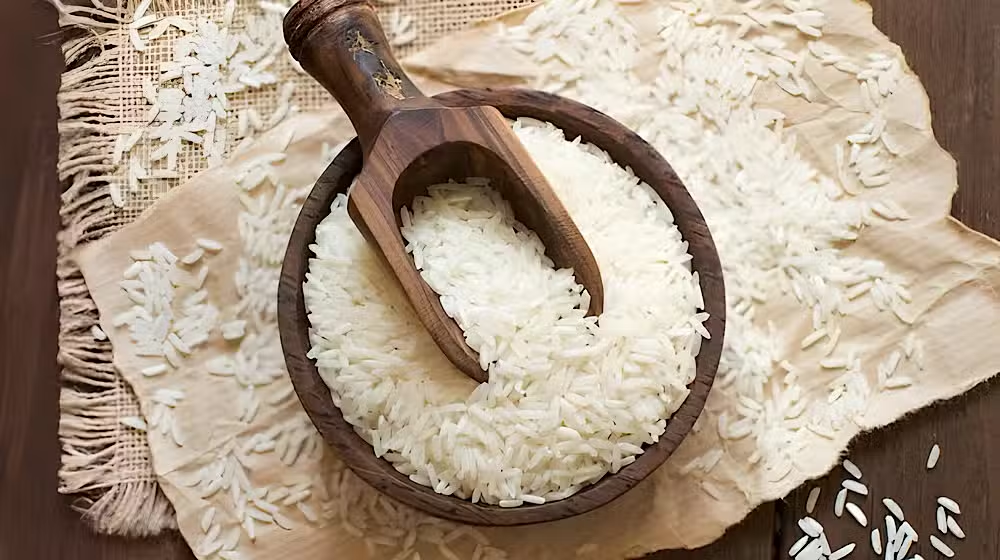Punjab University and Wuhan University Develop 1st New Hybrid Rice Seed

punjab university and wuhan university develop new hybrid rice seed
In a major milestone for Pakistan’s agricultural sector, Punjab University, in partnership with Wuhan University of China, has successfully developed a new hybrid rice seed that promises to revolutionize local rice production. This pioneering achievement is being hailed as a groundbreaking step in sustainable agriculture, offering a solution to food security challenges while empowering local farmers.1
According to Dr. Muhammad Ashfaq, Chairman of the Department of Plant Breeding and Genetics at Punjab University, the newly developed seed can potentially triple rice yields, producing up to 140 maunds per acre—a figure that dwarfs traditional varieties currently in use.
A Historic First for Pakistan: Hang Lian-Type Hybrid Rice
This development marks the first time a Hang Lian-type hybrid rice has been produced within Pakistan. Historically, such hybrid varieties have been imported at high costs and often lacked adaptability to Pakistan’s local climate and soil conditions.
Dr. Ashfaq emphasized that this variety is specifically engineered to thrive in Pakistani conditions, offering:
-
🌡 High resistance to heat waves
-
🌾 Durability against bacterial and fungal diseases
-
🐛 Natural resistance to common agricultural pests
These features not only enhance yield but also reduce the dependence on chemical pesticides and fertilizers, contributing to a more sustainable and eco-friendly farming model.
Approved by Pakistan Agricultural Research Council
Following extensive field trials conducted across all four provinces, the Pakistan Agricultural Research Council (PARC) has officially approved the hybrid seed for nationwide farming use. The trials were conducted in diverse agro-climatic zones including:
-
🌾 Punjab (Multan, Faisalabad)
-
🌾 Sindh (Larkana, Dadu)
-
🌾 Balochistan (Jaffarabad)
-
🌾 Khyber Pakhtunkhwa (DI Khan)
The consistent high-yield performance and pest resistance across all these regions confirm the seed’s adaptability and robustness.
Revolutionizing Rice Production in Pakistan
Rice is Pakistan’s second-largest food crop after wheat and a critical export commodity. Traditionally, farmers have faced challenges such as:
-
🚱 Water scarcity
-
🐛 Pest outbreaks
-
🔥 Climate-related yield reductions
-
💰 High input costs with low return
The new Hang Lian-type hybrid rice seed addresses these issues directly by offering:
✅ Higher productivity per acre
✅ Lower cost of cultivation
✅ Greater profit margins for farmers
✅ Reduced need for pesticide use
✅ Improved food security
This breakthrough could not only boost local production but also increase rice exports, supporting Pakistan’s agriculture-based economy.
Technology Transfer: A Win for Pak-China Relations
This initiative reflects the growing scientific and agricultural collaboration between Pakistan and China under the umbrella of CPEC (China-Pakistan Economic Corridor).
Wuhan University, a global leader in agricultural biotechnology, provided technical expertise, lab access, and training to researchers at Punjab University. This successful technology transfer is expected to pave the way for:
-
📚 Joint research programs
-
🧪 Local biotech capacity-building
-
🏭 Hybrid seed production facilities in Pakistan
These developments not only reduce reliance on imported seeds but also foster self-sufficiency and agricultural independence.
Expert Opinions and Farmer Feedback
Leading agronomists and field researchers have praised the hybrid rice variety. Dr. Ashfaq stated:
“We have developed a climate-resilient seed that not only boosts yield but also reduces the environmental footprint. This is a leap forward for Pakistan’s AgriTech sector.”
Farmers who participated in the early trials reported a significant drop in crop loss and a boost in income, as the new seed required less water and fewer inputs while delivering higher returns.
Impacts on Food Security and Rural Economy
Pakistan faces growing food demands with a rapidly increasing population. Traditional farming methods are becoming unsustainable under climate stress, water shortages, and soil degradation.
By introducing a high-yield, heat- and pest-resistant rice seed, this hybrid breakthrough addresses:
-
🍚 Food insecurity in rural regions
-
👩🌾 Low productivity in smallholder farms
-
🌎 Sustainable land management
Widespread adoption of the seed could raise the national average rice yield by over 40%, helping Pakistan feed more people with fewer resources.
Next Steps: Distribution and Awareness
Punjab University, in collaboration with the Punjab Agricultural Extension Department, is preparing to scale up seed production and distribution. Initial batches will be distributed to model farms and agricultural research centers across Pakistan.
Plans are also underway for:
-
📣 Farmer training seminars and demo plots
-
🎥 Educational campaigns through digital media and radio
-
💼 Public-private partnerships with seed companies
The goal is to ensure that even small-scale farmers in remote areas can access and benefit from this technological breakthrough.



